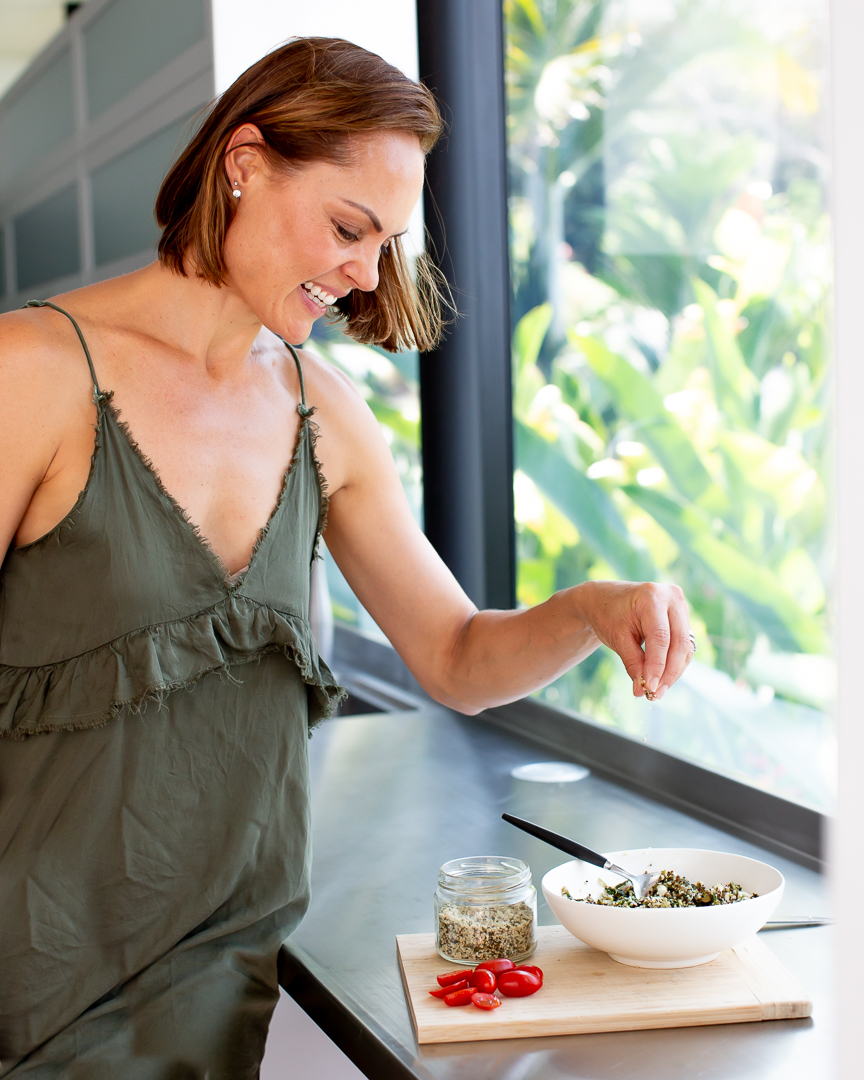Food waste is a problem affecting all of us, but thankfully, we all have the power to be in control of our own waste. In fact, taking a closer look at food waste is not only healthy for the planet, but also our back pocket.
According to Oz Harvest
• 35% of the average Australian household bin is food waste
• 8% of greenhouse gases heating the planet are caused by food waste
• Eliminating global food waste would save 4.4 million tonnes of C02 a year, equivalent of taking 1 in 4 cars off the road
While a lot of the tips I will be sharing, may not come as a surprise, in light of the current bush fire tragedy affecting Australia, it’s a timely reminder that we can all do our part to help prevent climate change, and starting with reducing food waste is accessible to all of us.
With that being said, here are 10 actions you can take today, to start reducing food waste:
1. Use a shopping list – how often do you go to the shops and arrive home with items that end up at the back of the cupboard only to be thrown out months later? To overcome this, write a shopping list and include only items you need – you can save space for a few ‘wild card’ items but make sure to find a way to use them!
2. Learn how to correctly store produce – Ever gone to make a salad only to find limp lettuce in the fridge? Learning how to store food will help to extend the shelf life – see this guide by Sustainable Table for tips.
3. Plan a few meals in advance – when we have a use for the food we purchase, there is a greater chance the food will be consumed. I like to plan a few days in advance and shop for those meals. I then plan for a few more days and stock up on any extra items needed. This can allow me to be flexible with my schedule and makes sure I am only purchasing what I need for a few days.
4. Invest in a compost bin – if you’re like me and eat a diet high in wholefoods, you are guaranteed to have a lot of waste to dispose of! Many people presume, you need a lot of land to house a compost bin, however, you can use a bench-top or indoor composter. Visit your local Bunnings store or similar and see what options are available to you!
5. Keep a food diary – do you regularly purchase food based on what you think you eat vs what you actually eat? Keeping a food diary for a week can be a really good way to accurately assess what you are eating and then base your shopping list off this. If you shop for a family, this can be a bit more challenging but keeping a loose track of what everyone is eating can be a good place to start. You may find that you over estimate what is needed and this can be a cause of your food waste.
6. Factor in leftovers – leftovers can make healthy living that little bit easier but unfortunately too often leftovers pushed to the back of the fridge and forgotten about! To overcome this, once cooled, freeze the leftovers for another time and make sure to label the container or keep a list of what meals are in the freezer. Otherwise, have a plan for your leftovers and use them the next day or following day. For example, if you have leftover roasted veggies, the next day add them to your lunch or try adding to scrambled eggs for breakfast. If you made a curry but there isn’t a full portion left, add some rice and veggies to go with the curry sauce.
7. Set a specific goal – for a week assess what you are actually throwing out and aim to cut this back by 30-50% the following week. Some people work best with specific goals in mind and like a challenge! Make sure the goal is realistic and you put in place the right measures to achieve the goal (such as following these tips!).
8. Designate a weekly meal as the ‘use it up meal’ – this means, you use only what’s in your fridge / pantry to make the meal with the aim of clearing out any leftover perishable food. A good night to do this is the night prior to going shopping because then you can start with a clean slate. Food waste aside, this can be a fun way to discover new meals and flavour combinations, which you may not have otherwise tried!
9. Sharing is caring – our diets and nutritional needs change overtime so if you have food which no longer serves you, its very likely to be of use to someone else! Therefore, if you have purchased a product, which you know deep down won’t be used but you are holding on to it because you paid for it, you are better off giving it to friends or family who will make use of the food. Remember what goes around comes around!
10. Focus on ‘wholefoods’ – there is a growing acceptance of using ‘off cuts’ in terms of both animal products and fruits/veg, which is a really positive movement. It can take time to learn how to use all parts of whatever food you are cooking with, but overtime, it will become second nature. Start with a few easy ones, for example, if you usually peel your potatoes, try using with skin on (washed) (unless you are mashing them!) and the same with carrots. Gradually build this up until you are mostly eating all of the ingredients you are using.
